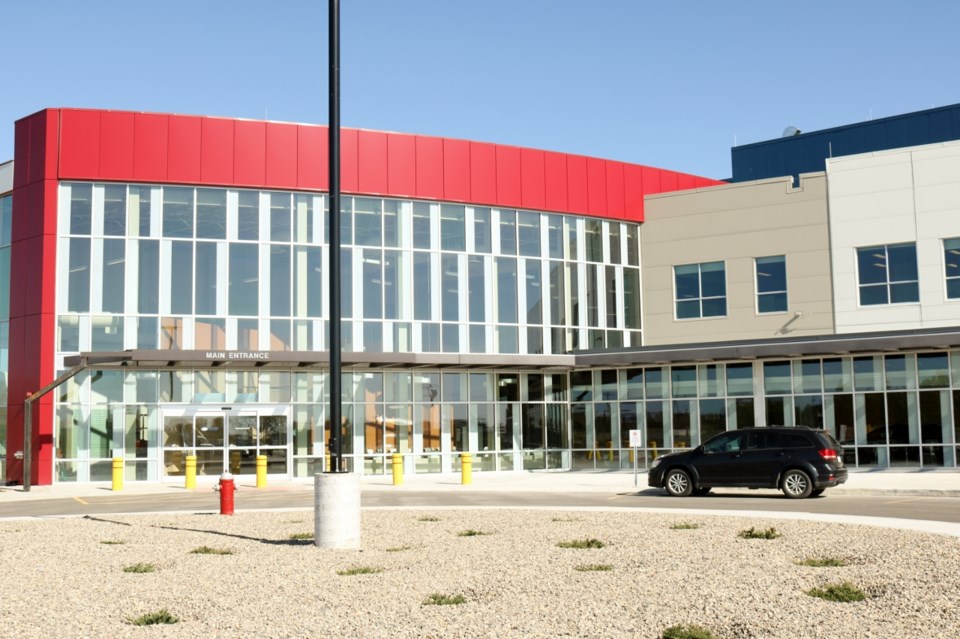NDP critics Vicki Mowat and Danielle Chartier made a stop in Moose Jaw for a “health check-up” with the citizens in the community, one of the many public forums aimed at hearing the concerns residents have regarding health care in the province.
Mowat, health critic, and Chartier, mental health and addictions critic and seniors critic, stopped at the Moose Jaw Express prior to the town hall meeting to outline the key issues they have been hearing from other communities across Saskatchewan.
Topics in the spotlight included mental health care, addictions support, and, overall, the recurring issue of accessibility to services — which popped up in talks about ambulance fees, ER backlogs, and overflowing addictions programs.
The NDP caucus is calling for more concrete action regarding health care issues, including a more solid stance of agreement for universal Pharmacare and a recognition of lacking resources for successful addictions treatment.
Ambulance accessibility
Concerns about the cost of ambulance rides have been in discussion since 2017, as Saskatchewan is tagged as one of the most expensive provinces to take an ambulance. Currently, there is no cap on the cost of ambulance services, and patients are charged for inter-facility transfers.
Instances of people refusing care and driving themselves to the hospital, in order to avoid ambulance bills, are coming to light too often, said Mowat.
“Under a system of Medicare, this is the last type of arrangement we would expect to see,” said Mowat. “[The provincial government] has tried to work to standardize contracts across the province but it's not addressing a lot of the very significant concerns.”
Burgeoning wait-times
Opposition critics are also hearing complaints about ER wait times, and the long lists of patients waiting to get into specialists for treatments.
Mowat criticized the provincial government for what she calls “backtracking” on the initiatives to reduce wait times in emergency rooms, from reducing waits entirely to seeing “some reduction.”
“We need to see targeted initiatives toward reduction of wait times,” said Mowat. “This government hasn't been successful in doing that, and we need to be able to call them on that publicly and really work toward how we're going to reduce those waits in the future.”
Chartier noted the addictions programs are also seeing wait times of several weeks for both detox programs and rehabilitation spots — which is not ideal for a province in the midst of a crystal meth and opioids crisis, said Chartier.
Care facilities dealing in mental health and addictions are seeing patients forced into shorter stays due to waitlists and a shortage of beds, which often results in repeat visits.
“Yes, they've added new beds this year, but there were fewer addictions beds prior to this budget than there were five years ago, and we're in the middle of an addiction crisis,” said Chartier.
Facilities are reporting an increase of patients admitted for crystal meth use, from three per cent to 30 per cent, and Chartier is calling for more investment into resources to address the issue. She notes that there is less than $10 million in the new budget specifically for new mental health service.
“This is a government who is days late and dollars short,” said Chartier. “[We’re] glad to have some money spent in mental health and addictions, but it isn't enough and we are playing catch-up now.”
Maintaining supports for seniors
Chartier also asserts that there is a place for the government to step up in light of the struggles of the two seniors organizations in Moose Jaw, who are floundering under financial strain.
“[These associations] keep people out of the hospital. It keeps them at home, engaged and connected in their community,” said Chartier. “I think that the provincial government has a role to play in helping support seniors.”
The issue of struggling seniors associations is one that both Mowat and Chartier expected to hear from Moose Jaw residents.
The health check-ups will continue across the province through the summer, and the opposition critics will be using what they hear to inform policy decisions and future legislative sessions.




